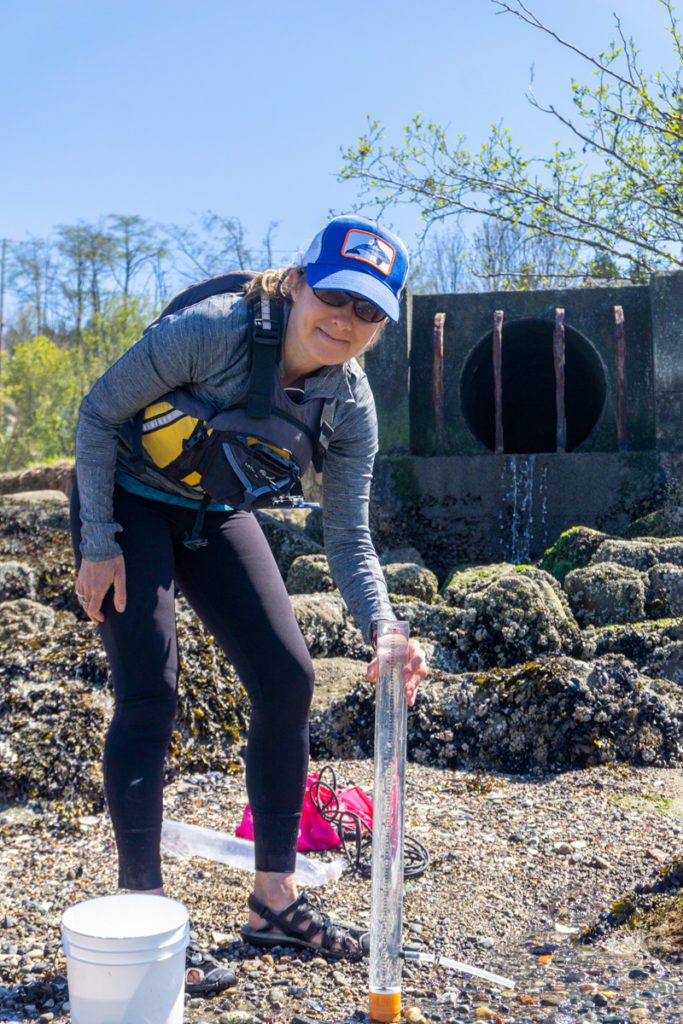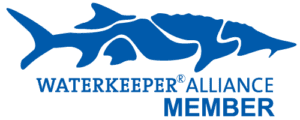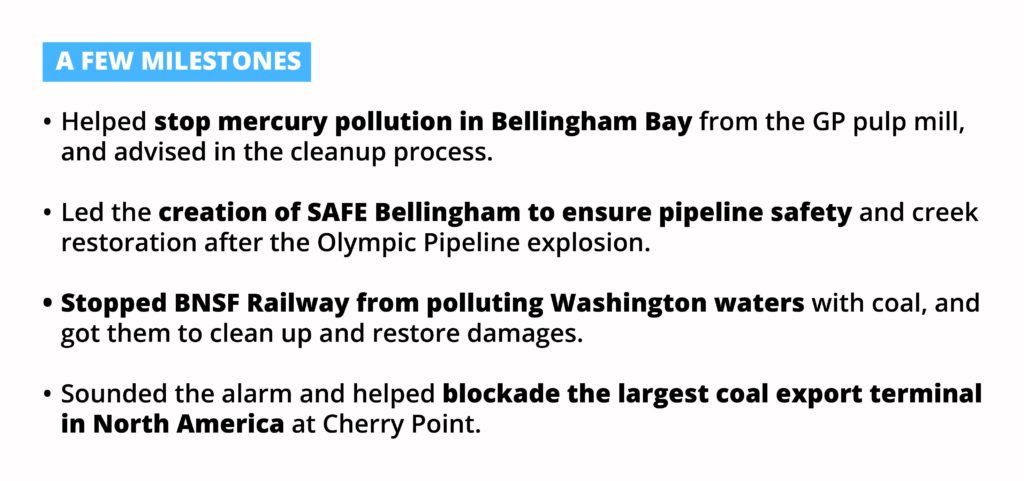Our North Sound Waterkeeper, Kirsten McDade, is just one person — but RE Sources’ team of experts make the work of Waterkeeping possible. This team is charged with protecting and restoring marine and nearshore habitats of central Salish Sea, collaborating with other local groups and volunteers, and advising government agencies.
Meet your North Sound Waterkeeper, Kirsten McDade!

Kirsten McDade
North Sound Waterkeeper
KirstenM@re-sources.org
Kirsten collaborates with community members and stakeholders to ensure that our local waterways are treated with dignity, respect, and according to the law. Born and raised in the Pacific Northwest, she earned a BA in Biology from Colorado College, MS in Forest Ecology and Wildlife Biology from Oregon State University, and a teaching credential from Western Washington University. She believes using best-available science in conjunction with coalition-building are the ingredients needed to ensure our water is protected for generations to come. In her spare time, she can be spotted walking or running the trails with her dog Wren, cheering for her son on the soccer field, or mountain biking or snowboarding with family.
What does a Waterkeeper do?
As part of the Waterkeeper Alliance, upholding the integrity of the U.S. Clean Water Act is central to the work of our North Sound Waterkeeper team. To keep the central Salish Sea and the inland waters that feed it fishable, swimmable, and drinkable, the North Sound Waterkeeper:
- Trains community scientist volunteers to gather data and monitor the Salish Sea’s health — data that government agencies are often too underfunded to collect,
- Hosts community trash cleanups, on-the-water pollution patrols, and tours of toxic cleanup sites like those on the Bellingham and Blaine waterfronts,
- Serves as a voice for science in local media, and provides technical expertise to agencies;
- Advocates for water-wise, science-based policies,
- Monitors the quality of water in rivers, creeks, and the Salish Sea: by conducting regular pollution patrols, keeping an eye on permits issued to limit allowable pollution, and monitors the Pollution Hotline at (360) 220-0556,
- Alerts the community to public participation opportunities to protect clean water and show up to hearings to continue to fight for fishable, swimmable, drinkable water for everyone,
- And much more.
The North Sound Waterkeeper housed within RE Sources is the 25th member of the Waterkeeper Alliance, an international nonprofit that strengthens and grows a global network of grassroots leaders protecting everyone’s right to clean water. The Waterkeeper Alliance is made up of over 300 organizations and affiliates protecting rivers, lakes, and coastal waterways on 6 continents, with a goal of swimmable, drinkable, fishable water everywhere. Learn more.


